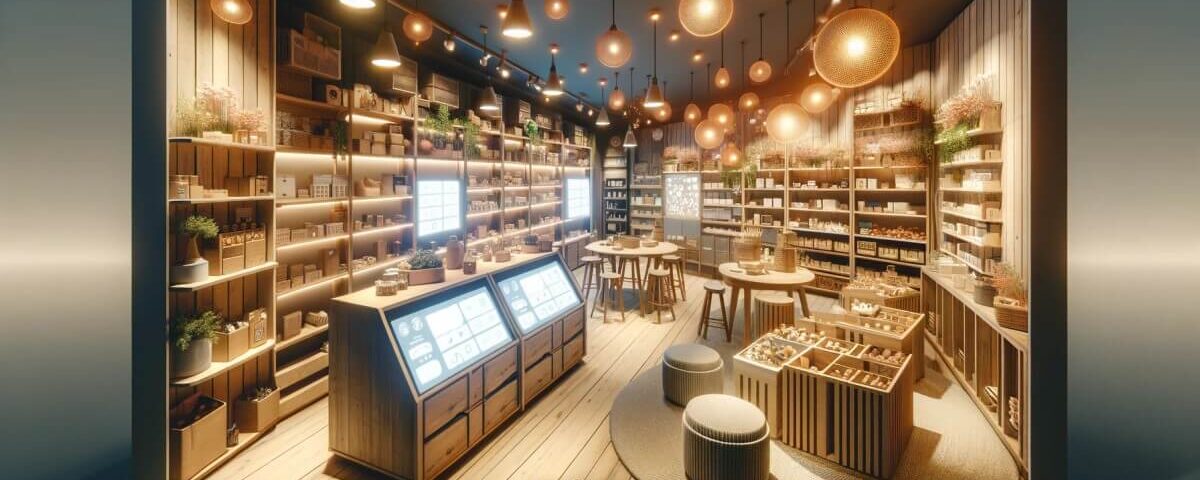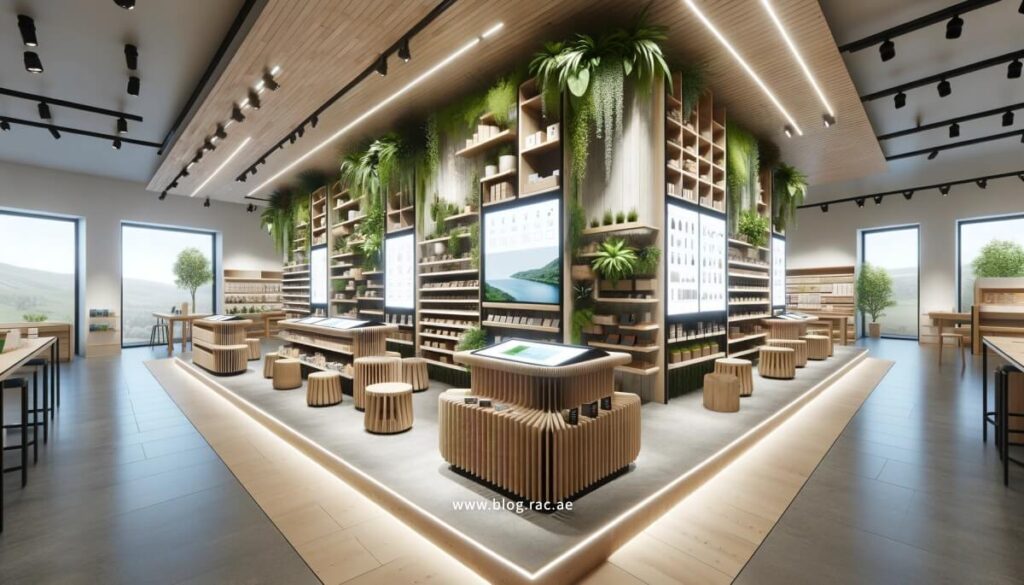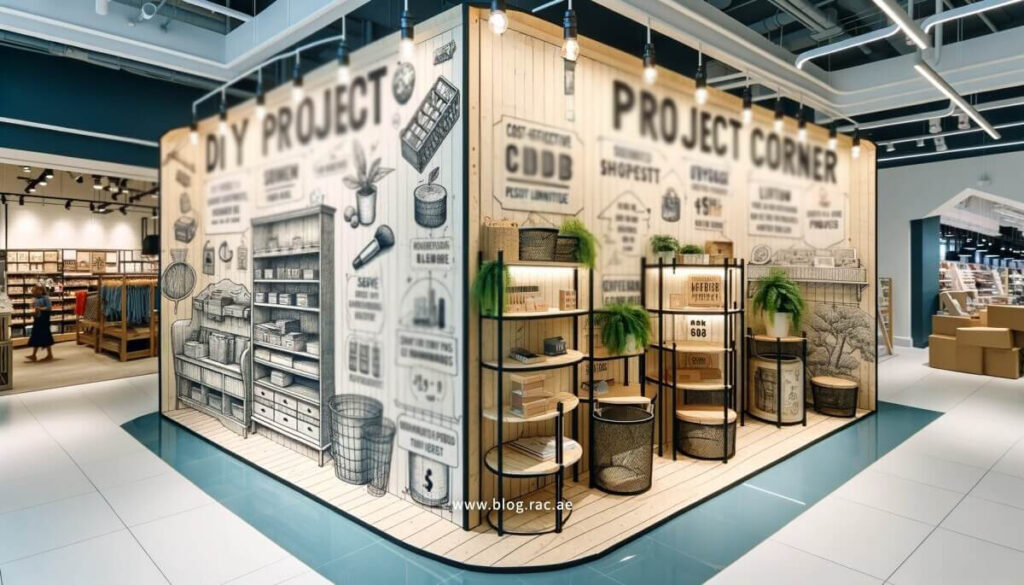
Hidden Gems: Unveiling the Creative Process Behind a Design
March 26, 2024
Contractor Conundrums: How to Choose the Right Fitout Partner
March 29, 2024Small Business Success Story: Retail Design on a Budget

The art of retail design is a crucial yet often underappreciated element in the success of small businesses. This sector demands creativity and innovation, especially when financial resources are limited. The significance of retail design extends beyond mere aesthetics; it plays a pivotal role in customer attraction and retention. This narrative unfolds the journey of a small enterprise that triumphed over budgetary constraints to craft an inviting and effective retail space. Their story sheds light on how strategic design choices can elevate a brand, regardless of the size of the budget.
Table of Contents
Challenges Faced by the Business
Embarking on their venture, the business encountered several hurdles. Financial limitations topped the list, accompanied by the struggle to carve out a distinctive identity in a crowded marketplace. The need for a retail environment that resonated with their brand identity while ensuring optimal functionality was paramount. These initial obstacles underscored the need for a retail space that wasn’t just visually appealing but also fostered a unique shopping experience.

Strategy: Retail Design on a Budget
The enterprise adopted a multifaceted strategy to revamp their retail space without draining their finances.
- DIY Design Solutions: Embracing a hands-on approach, the business owners repurposed and crafted decor elements themselves, infusing the space with a personal touch that resonated with customers.
- Cost-Effective Materials and Suppliers: Vigilant research and negotiation led to the discovery of budget-friendly materials and cooperative suppliers willing to offer competitive rates, significantly reducing costs.
- Multipurpose Spaces: Ingeniously, the store was designed to serve dual purposes – from displays that doubled as storage to areas that could host events, maximizing the utility of every square foot.
- Digital Integration: Digital tools were seamlessly integrated into the physical store, enhancing the shopping experience through interactive displays and social media engagement, all while being mindful of costs.
- Sustainability Focus: The pursuit of sustainability proved to be not just an ethical choice but a cost-saving strategy as well, attracting eco-conscious customers and saving on operational costs through energy-efficient designs.
Impact of Budget-Friendly Design Strategies
The transformation had a profound impact:
- Customer Response: The unique and engaging design of the store was met with enthusiasm and praise from customers, contributing to a loyal customer base.
- Sales and Foot Traffic: There was a noticeable uptick in sales and foot traffic, demonstrating the direct influence of a well-thought-out retail design on business performance.
- Brand Image: The distinct design elements and brand consistency improved brand recognition and set the store apart from competitors.
- Media Attention: The innovative approach to retail design garnered attention from local media and online platforms, amplifying the store’s visibility.

Key Takeaways: Lessons from Budget-Friendly Retail Design
The journey of transforming a retail space on a budget highlights several critical insights for small businesses. Creativity and innovation in design can thrive without excessive spending. Aligning retail design with brand values significantly enhances customer experience and perception. Sustainable practices not only appeal to eco-conscious consumers but also provide economic benefits. This story serves as an inspiration for small business owners to embrace retail design as a chance to innovate and distinguish their brand in the competitive market.
Conclusion
This narrative exemplifies how limitations can foster creativity, leading to success in retail design. It serves as a testament to the fact that financial constraints need not hinder the creation of an engaging and effective retail space. Small business owners are encouraged to approach retail design as an opportunity to innovate and distinguish their brand in the market.
FAQs
1. Why is retail design important for small businesses?
Retail design is crucial because it enhances customer attraction and retention, creating an inviting and effective retail space that resonates with customers and reflects the brand’s identity.
2. What were the main challenges faced by the business in this story?
The primary challenges included financial limitations and the need to establish a distinctive identity in a crowded marketplace while ensuring the retail environment was both visually appealing and functional.
3. How did the business overcome budgetary constraints in their design?
The business adopted DIY design solutions, used cost-effective materials and suppliers, designed multipurpose spaces, integrated digital tools, and focused on sustainability to revamp their retail space without overspending.
4. What are DIY design solutions, and how did they help?
DIY design solutions involve the business owners crafting and repurposing decor elements themselves. This hands-on approach added a personal touch to the store, resonating well with customers and saving money.
5. How did the business find cost-effective materials and suppliers?
Through vigilant research and negotiation, the business discovered budget-friendly materials and suppliers willing to offer competitive rates, which significantly reduced their overall costs.
6. What are multipurpose spaces, and why are they beneficial?
Multipurpose spaces serve dual functions, such as displays that also provide storage or areas that can host events. This design maximizes the utility of each square foot, enhancing functionality without additional costs.
7. How did digital integration enhance the retail experience?
The integration of digital tools, such as interactive displays and social media engagement, enriched the shopping experience while being cost-effective, helping to attract and retain customers.
8. Why is sustainability important in retail design?
Sustainability is crucial as it attracts eco-conscious customers and saves on operational costs through energy-efficient designs, proving to be both an ethical and economical choice.
9. What impact did the budget-friendly design strategies have on customer response?
Customers responded enthusiastically to the unique and engaging design, which contributed to building a loyal customer base and improving overall customer satisfaction.
10. How did the design changes affect sales and foot traffic?
The well-thought-out design led to a noticeable increase in sales and foot traffic, demonstrating the direct positive impact of effective retail design on business performance.
11. In what ways did the new design improve brand image?
The distinct design elements and consistent branding enhanced brand recognition, setting the store apart from competitors and creating a stronger brand identity.
12. Did the business receive any media attention due to their innovative design?
Yes, the innovative approach to retail design attracted attention from local media and online platforms, increasing the store’s visibility and reach.
13. What key insights can other small businesses learn from this story?
Other small businesses can learn that creativity and innovation in design do not require extravagant spending, aligning retail design with brand values enhances customer experience, and sustainable practices can be both appealing and cost-effective.
14. How can small businesses approach retail design to stand out in the market?
Small businesses should view retail design as an opportunity to innovate and distinguish their brand by being creative, leveraging cost-effective solutions, and ensuring their design aligns with their brand values.
15. What does this success story illustrate about overcoming financial constraints?
The story illustrates that financial constraints can actually foster creativity, leading to innovative and effective retail design solutions that drive business success.
